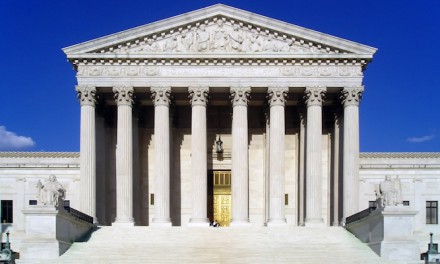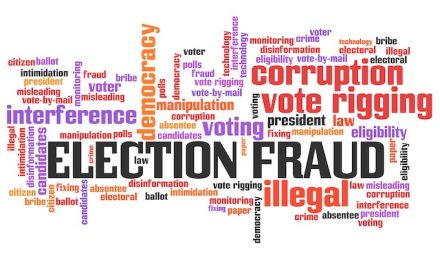Fifteen bucks ain’t what it used to be.
Sen. Bernie Sanders and his liberal band of Robin Hoods pushed hard to make $15 an hour the national minimum wage, arguing it would be a gigantic step in reducing poverty and bringing dignity to work.
It never happened as a policy. But the marketplace did what the leftist activists couldn’t.
Labor shortages coming out of the COVID-19 epidemic have made the Fight for 15 campaign obsolete. Fifteen dollars an hour has become the de facto minimum wage — almost no one is working for the official $7.25 an hour pay floor anymore.
And even so, employers are still having trouble finding workers and are tacking on benefits such as health insurance, 401K plans and paid college tuition to the higher hourly pay.
In October, the annual wage rate increase reached 4.9%, twice the average of the past two decades.
So what’s happened? Instead of leaving workers flush with cash, their buying power hasn’t increased at all. It went down.
Inflation in October came in at an annual rate of 6.2%, the highest level in 31 years. And the impact on the most common goods purchased is even more painful.
Basic grocery staples such as meat and eggs are up 10% this year. Used cars are up 24%. Cost of gasoline, 42%; furniture, 11%. Fuel for home heating this winter is expected to spike 30% or more.
So even at $15 an hour or more, the goal of a livable wage remains elusive.
Higher labor costs are only partly to blame for the price jumps. Disruptions in the supply chain caused by shutdowns during the pandemic and a reluctance of employees to rejoin the workforce are a major contributor.
So is unprecedented government spending in the name of COVID relief and stimulus. The federal government so far has passed $5.5 trillion in extra spending since the pandemic began. And if President Joe Biden and Democrats get their way, they’ll add another $2 trillion through the Build Back Better proposal being held up in Congress only by the resistance of Democratic Sens. Joe Manchin of West Virginia and Krysten Sinema of Arizona.
Manchin issued a statement last week warning of the damaging affects of soaring prices, an indication that he’s arming himself for a continued resistance against Biden’s huge spending ambitions.
The Biden administration insists inflation is transitory, and will ebb when the economy normalizes. But Federal Reserve Chairman Jerome Powell and Treasury Secretary Janet Yellen are now saying the upward push in prices will last longer than they expected, likely remaining strong into the middle of next year.
The administration must take inflation more seriously. It should put a hold on its Build Back Better spending bill until it can gauge whether its hunches about the temporary nature of inflation are right. Flooding more federal dollars into an economy that is already struggling to meet consumer demand is reckless.
And the Fed should consider a more aggressive response. Powell does plan to reduce the bond purchases that were used to prop up the economy during the COVID shutdowns, but has said the Fed will not cut interest rates until the country reaches full employment. With Biden planning even more incentives for Americans not to work, who can say when that will be?
Powell called the inflationary pressure “frustrating.” For Americans living on the economic margins, “disastrous” would be a better word.
Sign up for the Nolan Out Loud morning report at detroitnews.com/newsletters.
Watch Finley on DPTV’s “One Detroit” at 7:30 p.m. Thursdays.
___
(c)2021 The Detroit News
Visit The Detroit News at www.detnews.com
Distributed by Tribune Content Agency, LLC.
—-
This content is published through a licensing agreement with Acquire Media using its NewsEdge technology.



















The dipsh*t in our whitehouse says Americans have more money now so inflation won’t hurt them at all. Some people need to have their heads opened and America **** in it to give them something to think with.
It’s already been done. The Democrats have filled our brains to the brim with unworkable socialist **** which is what brought us to the current situation. First, they get the bottle in front of me, then we all require a frontal lobotomy. You cannot double the amount of money available to chase the same or dwindling amount of produced goods without the cost in money going up, unless you already have **** for brains. With Joe his entire program is a **** game and a roll of the dice where they throw the **** to see if it sticks to the walls, but just ends up sticking to their own, and now OUR own American brains.
What’s the betting, they now try to push for 20$/hr min wage!
$15-an-hour pay is eroding small business.
Using government wage mandates to secure wages higher than the market value of their work are like a dog chasing his own tail. He may hold on to it for a while but sooner or later the discomfort of the unnatural posture needed to remain in an unnatural position for long brings on the corrective pain. Inflation is to the economics of unnatural wages what a tail is to a dog. The market always disciplines those who ignore its laws of supply and demand, and fairness of wages paid for honest work, whether too high or too low. When socially manipulated to become lower than its real value, it is the oppressive business men who get disciplined in pain for rejecting the laws of supply and demand. When socially manipulated by government social experimenters to become higher than its real market value, it is the government socialist who become the oppressors and it is they who the market eventually disciplines back to a posture of reality, usually with THE PEOPLE paying the price to correct the temporary Liberal corrected economic aberration in unfit redistribution of American property and wealth. Only the socialist criminals who receive the benefits come out ahead. Unnatural created market conditions are like stolen elections, and last only as long as it takes THE PEOPLE to wake up to the pain produced, and take actions that rid themselves of the pain.
Everything this govt has done, is designed to kill small business.. BECAUSE THE BIG BOX Businesses have lobbyists, that PAY THEM, where as mom and pop stores, can’t afford to have lobbyists.
The treachery of the traitorous, socialist Democrat Party know no bounds.
How do you change— change the U.S. from a capitalist system’,
Into a Socialistic Democrat Party government controlled system. ??
1. Healthcare — Control healthcare and you control the people.
2. Welfare — Take control of every aspect of their lives (Food, Housing, and Income).
3. Education — Take control of what people read and listen to — take control of what children and young people learn in schools and colleges.
4. Religion — Remove the belief in the God from the Government and schools.
5. Class Warfare — Divide the people into the wealthy and the poor. This will cause more discontent and it will be easier to take from the wealthy and give to poor. Until there are only the poor.
6. Debt — Increase the debt to an unsustainable level.
7. Gun Control — Remove the ability for the people to defend themselves from the Government. (“Socialist Democrat Party State”)
8. Poverty — Increase the poverty level as high as possible. Poor people are easier to control.
Do these look like the tactics of the Democrat Party??
This traitorous, dishonorable, dishonest, immoral, socialist Democrat Party has become our country’s most destructive and deadliest ENEMY!
$15.00 dollars an hour HEY A WHOLE BUNCH OF SOCIAL SECURITY PEOPLE THAT WORKED A FULL 45 YEARS would love to be getting that much or as much as a whole bunch of entitled people that never worked get that all the dogooders believe they are entitled to and never put our own full time working citizens to the front of the money line
$15.00 minimum wage but thanks to sewage pile senile old geezer it now takes a $30.00 an hour wage to live. Where was the gain?
Other than the ‘feelings’ of the whiners, there WAS none.
In the cesspool / swamp’s pocket… as always… these scum do… NOTHING… unless it benefits them.
Since there’s no way to really drain that swamp, i say we need to WALL IT OFF, and permanently CUT IT OFF, from the entire outside…
The rogues currently occupying our government cannot blackmail the small business owner for support only the bigger businesses that have the means to obey as subjects would, when threatened.
I’m still asking ,how many got off welfare and food stamps??? None !!!.